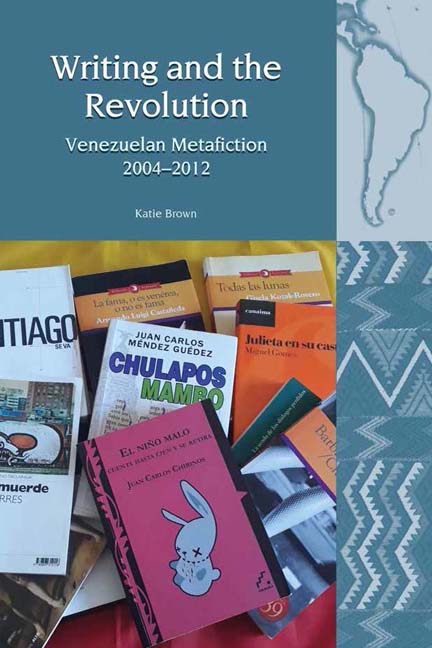Conclusion
Summary
This book began life with a simple question: what does it mean to be a writer from Venezuela in the context of the Bolivarian Revolution? From reading novels written since Hugo Chávez came to power in 1999, it was clear that questions about why to write, how, and who for were at the forefront of their writers’ minds. I therefore set out to analyse the Venezuelan literary field, asking what values were attributed to literature by both the Bolivarian regime and by authors, and how these values had developed through Venezuelan literary history. I use values as a portmanteau to include ideas about the uses of literature (why write, why read) and about literary quality. This book responds to calls by Emilia Bermúdez and Natalia Sánchez (2009) and Ana Afanador et al. (2011) for better understanding of Bolivarian cultural policy, given that both Hugo Chávez and Francisco Sesto have stated that culture is an integral part of the revolutionary ‘Process’. It builds on studies of Bolivarian cultural policy by Venezuelan scholars, particularly Gisela Kozak Rovero (2007b; 2008; 2015a) and Manuel Silva-Ferrer (2014), offering an analysis of how the context of Bolivarian cultural policy has had an impact on the content and form of narrative produced outside of the state system. In response to recent definitions of Latin American literature as ‘global’ (Hoyos, 2015) or ‘post-national’ (González 2012; Robbins and González, 2014), and building on comments by Miguel Gomes (2012), I argue that the national has an enduring significance for Venezuelan writers, even those operating outside of the state system. Beyond Gomes's assertion that Venezuelan social and political concerns shape the content of narrative, including narrative set outside the country's borders, I maintain that there are structural reasons why we must take the national context into account. For a number of reasons, including the legacy of the Boom, the state funding of literature under Punto Fijo and the relatively low levels of migration from Venezuela, Venezuelan literature has until very recently been markedly absent from the international literary market, particularly when it comes to translation. This means that changes to the state publishing system on which most writers relied have been very deeply felt. It is therefore unsurprising that so much recent fiction responds to the changes in the way that reading and writing were viewed by the state.
- Type
- Chapter
- Information
- Writing and the RevolutionVenezuelan Metafiction 2004-2012, pp. 171 - 174Publisher: Liverpool University PressPrint publication year: 2019



